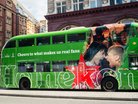Heineken: Manufacturing Bottle Waste Into Green Materials

Heineken is making waves with its Green Island project, transforming glass waste from beer bottles into innovative construction materials.
This initiative not only highlights the potential for recycling glass but also serves as a benchmark for sustainable practices in manufacturing across the globe.
From Bottles to Building Blocks
Manufacturing glass typically leads to the creation of various forms of waste, such as cullet (broken or defective glass), furnace dust (fine particulates from melting raw materials), and off-spec products (items that fail quality checks).
By recycling glass, this waste is mitigated, bringing both environmental and financial gains.
The British Glass organisation has discovered that recycling just one tonne of glass can save 246 kg of CO2 emissions.
So, by championing the repurposing of its beer bottle glass into building materials, Heineken is at the forefront of reducing environmental footprints.
This initiative helps cut costs linked to glass disposal and raw material procurement, offering a blueprint for other industries to emulate.
Heineken's Strategic Approach to Recycling
Heineken is deeply informed of the benefits of recycling, embracing it in its factories across the world. Below is a video for example that highlights the company's bottle recycling operation in Myanmar.
By incorporating recycled cullet into their production processes, the required energy for glass melting is decreased by up to 30%.
This reduction can lead to significant economic savings, especially for industries producing in large volumes—which could equate to an annual reduction in costs between US$100,000 and $300,000.
Additional advantages of using recycled glass include a reduction in raw material costs—where each tonne of cullet can substitute for 1.2 tonnes of raw inputs, saving approximately US$10 to $20 per tonne in mining, transportation, and processing expenses.
Furthermore, this also assists in diverting glass waste from landfills where disposal fees can be steep, around US$120 per tonne, resulting in savings of tens of thousands of dollars annually.
Equipment longevity is another benefit; using cullet means that the materials melt at a lower temperature, which extends the lifespan of furnaces and cuts maintenance costs by 15–20%, adding up to annual savings of US$50,000 to $200,000 for large-scale manufacturers.
These strategies come to life through Heineken's collaborations with Glass Futures and other partners.
In 2021, along with Encirc, Heineken undertook a pivotal trial producing bottles using up to 100% recycled glass and ultra-low-carbon biofuel, marking a tremendous move toward reducing the carbon footprint of glass manufacturing by up to 90%.
This project was supported by a £7.1m ($8.9m) grant from the UK government.
"For over 150 years, we’ve been passionate about making a positive impact on the world around us," says Dolf van der Brink, Chairman and CEO of Heineken.
" We know that we can only thrive if our people, the planet and the communities around us thrive.
"We are moving into a decade with even more complex challenges.
"Our Brew a Better World vision for 2030 raises the bar and enables faster progress towards a net zero, fairer and healthier world.
"Our new commitments are woven into the fabric of our balanced growth strategy, EverGreen, putting sustainability and responsibility front and centre as we write our next chapter.
"I want to thank our enthusiastic and committed employees for their continued passion for this topic. Together, we will do our part to brew a better world.”
Broader environmental impact and future goals
In its quest for sustainability, Heineken aims to reach a zero net carbon footprint by 2030 in its production operations, and by 2040 throughout its entire supply chain. From 2018 to 2022, the company already reduced emissions by 20%.
In UK operations, all barley used is Red Tractor certified to guarantee sustainable farming practices. Additionally, the company has made strides in water conservation through its SmartDispense technology, which has saved over 134 million pints of water since 2012. Moreover, 30% of its energy now derives from renewable sources.
Heineken's eco-friendly endeavours extend beyond just energy use. The company also reutilises 100% of spent grain for animal feed and turns apple waste into green energy at its cider mills—utilising only locally sourced apples from within 40 miles for products like Inch’s Cider.
These investments in technology and collaboration with agricultural stakeholders underscore Heineken’s commitment to reducing its environmental impact while fostering a more sustainable future for manufacturing.
Overall, Heineken’s approach not only conserves natural resources but also positions the company as an attractive option for eco-conscious consumers and investors, enhancing its reputation in the manufacturing sector.
Explore the latest edition of Manufacturing Digital and be part of the conversation at our global conference series, Manufacturing LIVE.
Discover all our upcoming events and secure your tickets today.
Manufacturing Digital is a BizClik brand.
- Manufacturing Unwrapped: Sequinova & Biodegradable SequinsProcurement & Supply Chain
- Manufacturing Unwrapped: BASF, ABB & Chemical CircularitySustainability & ESG
- Manufacturing Unwrapped: Inside IKEA, The Wonderful EverydayProduction & Operations
- Shell & Equinor Deal: Implications for Manufacturing SectorSustainability & ESG


